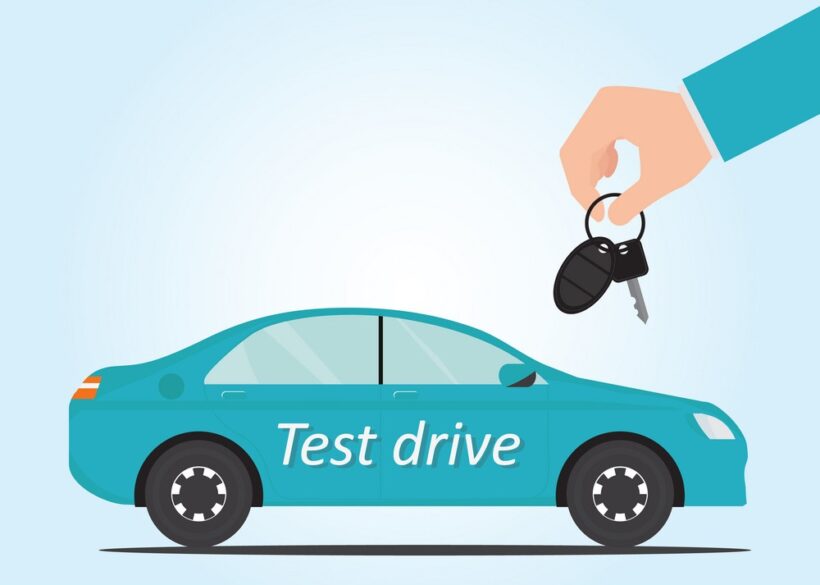Buying a new vehicle can feel like walking into a maze blindfolded. There are endless choices, hidden costs, and that looming question: “Am I getting ripped off?” The pressure is real, but you don’t need to face it alone. With a plan, you can conquer the car-buying process without breaking a sweat—or your wallet.
This guide breaks the process into clear, manageable steps. By the end, you’ll know how to find the best deal, avoid unnecessary costs, and choose financing options that make sense for you.
Key Points:
- Research is your best friend.
- Always test-drive.
- Look beyond the sticker price.
- Check your financing options.
- Be ready to negotiate.
1. Start with a Budget

Begin with a hard look at your finances. Decide how much you’re comfortable spending—not just on the price of the car but also on insurance, maintenance, and fuel. Many buyers fall into the trap of thinking only about the monthly payment. A lower monthly figure might seem appealing, but it could mean a much longer payment period. Long-term deals often end up costing more in the end.
Create a realistic budget before you even step foot in a dealership. Write it down and stick to it.
2. Secure Financing Before Shopping
Walking into a dealership without financing is like going grocery shopping on an empty stomach—bad decisions are almost guaranteed. Shop around for loans before even glancing at a vehicle. Check with your bank, credit union, or online lenders to compare interest rates.
Getting a pre-approved loan can save you money and headaches. It provides a clear understanding of your budget and gives you stronger negotiating power at the dealership.
3. Research the Market
Research isn’t optional. Start online and compare prices for the model you want. Websites, forums, and even social media can help you understand how much people are paying. This information gives you leverage when negotiating with dealers.
Look for reviews from owners. Find out if the car is known for expensive repairs or poor fuel efficiency. Those hidden costs add up over time.
4. The Test Drive: More Than a Spin Around the Block

A test drive isn’t just about making sure the car runs. Use this opportunity to evaluate comfort, visibility, and features. Drive it on highways, city streets, and in stop-and-go traffic. Don’t rush.
Make sure the controls are easy to use. Are the seats comfortable? Does the sound system meet your expectations? Minor annoyances now can become major regrets later.
5. Check for Hidden Costs
The sticker price is only part of the story. Dealers love tacking on extras like documentation fees, delivery charges, and warranties. Ask for a breakdown of the full cost before agreeing to anything.
Consider additional expenses like insurance premiums. Some vehicles are more expensive to insure due to their make, model, or features. Call your insurance company and get a quote before committing.
6. Negotiate The Price
When the time comes to talk numbers, be confident. Dealers expect negotiation, so don’t shy away. Start with a counteroffer lower than the price you’re willing to pay.
Ask about incentives or discounts. Some dealerships offer special promotions for students, military personnel, or first-time buyers. Every dollar saved counts.
7. Consider a Used Vehicle

A brand-new car loses value the moment you drive it off the lot. If saving money is a priority, consider buying a used vehicle. Certified pre-owned options often come with warranties, giving you peace of mind without the hefty price tag.
Run a vehicle history report to avoid surprises like previous accidents or unpaid loans. Trust, but verify.
8. Don’t Forget the Warranty
Read the fine print on any warranty offered. What’s covered? For how long? Does it include roadside assistance? Knowing these details can save you from unexpected expenses down the road.
Extended warranties might sound tempting but aren’t always worth it. Consider your driving habits and how long you plan to keep the car before deciding.
Final Recommendations
1. Consider the Timing of Your Purchase
Timing matters when it comes to buying a vehicle. Dealers often offer discounts at the end of the month, quarter, or year to meet sales targets. Holidays like Black Friday or year-end clearance events can also bring significant savings. Walk in prepared during these periods to snag a deal.
2. Know the Value of Your Trade-In
If you’re trading in an older vehicle, research its value beforehand. Use online tools like Kelley Blue Book or Edmunds to determine a fair trade-in price. Dealerships may undervalue your trade-in, so knowing its worth gives you leverage.
Negotiate the trade-in separately from the new vehicle price to ensure you get the best deal on both.
3. Don’t Fall for Extras
Dealerships love offering extras like fabric protection, extended warranties, or gap insurance. While some add-ons may be useful, many are overpriced or unnecessary. Research each option independently before deciding.
Politely decline anything that feels like a hard sell. You can always add coverage later if you change your mind.
4. Verify the Final Contract
Before signing any paperwork, double-check every detail. Confirm that the agreed-upon price, interest rate, and loan terms are correct. Look for hidden fees or changes that weren’t discussed earlier.
Never feel pressured to rush through the process. It’s your money, so take your time.
5. Bring a Trusted Friend
If you feel uncertain about navigating the buying process, bring someone you trust. A second opinion can help you stay objective and avoid emotional decisions. Choose someone knowledgeable about vehicles or negotiations to strengthen your position.
6. Final Tip: Walk Away If Necessary
The ultimate power lies in your ability to walk away. If the deal doesn’t feel right, thank the salesperson and leave. There’s always another dealership or another vehicle waiting for you. Protect your budget and peace of mind by sticking to your plan.
Conclusion

Buying a car doesn’t have to be stressful. With preparation and a solid plan, you can navigate the process like a pro. Stick to your budget, do your homework, and never settle for the first offer.
Treat the process like a marathon, not a sprint. A little patience and persistence go a long way in securing a deal you can feel good about long after you’ve driven off the lot.

